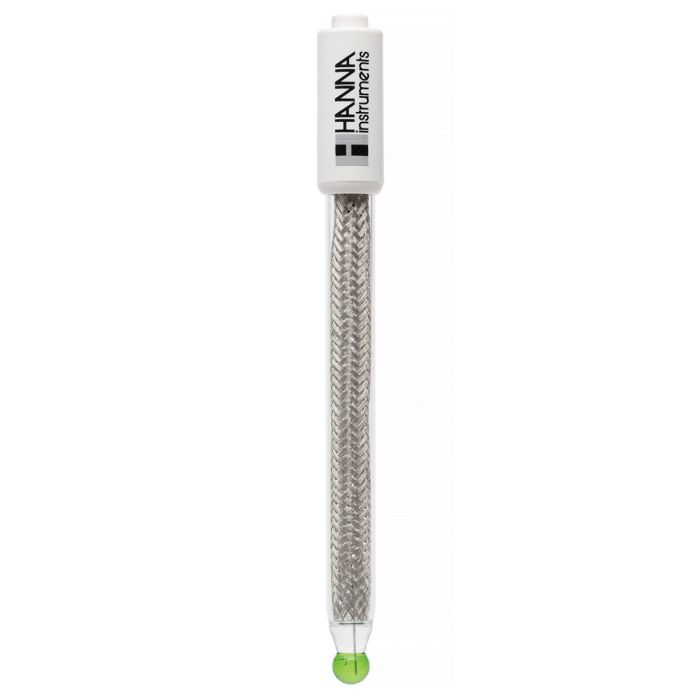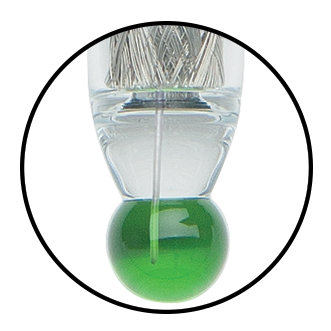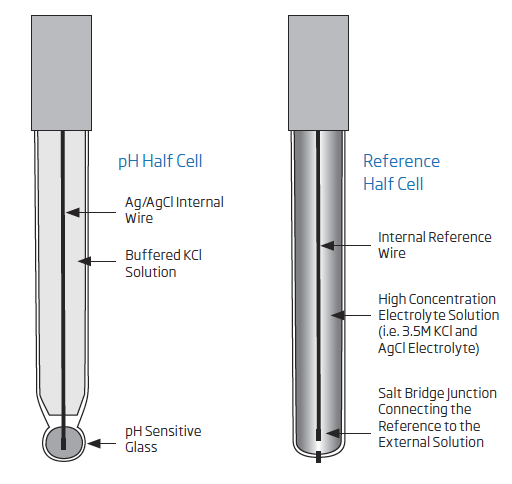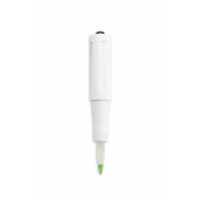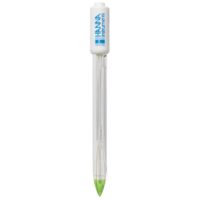Description
Hanna Instruments offers a wide variety of pH electrodes that are designed for many different applications. The type of glass used for sensing pH, bulb shape, body material, type of junction, type of reference and electrolyte used are just some of the design considerations.
The FC260B half-cell electrode uses low temperature (LT) glass with a spherical bulb and glass body.
Low Temperature Glass Formulation
The glass tip uses a special LT glass formulation with a lower resistance of approximately 50 megaohms compared to general purpose (GP) with a resistance of about 100 megaohms. This is beneficial since many food products are stored at low temperatures. As the temperature of the glass decreases in the sample, the resistance of the LT glass will increase approaching that of GP glass at ambient temperatures. If using GP glass, the resistance would increase above the optimum resistance for the high impedance input of a pH meter. The FC260B is suitable to use with samples that measure from -5 to 100℃.
Spherical Bulb
The spherical bulb is for general purpose use. Other tip shapes include conic for penetration and flat tip for surface measurements.
Glass Body
The glass electrode body is suitable for a wide range of applications due to its chemical resistance. The glass electrode is compatible with many non-aqueous solvents and other aggressive chemicals. Glass is also resistant to many forms of radiation, such as ultraviolet radiation.
BNC Connector
The FC260B uses a BNC connector. This type of connector is universal in that it can be used on any pH meter that has the female BNC probe input. Other type of connectors include DIN, screw type, T-type, and 3.5mm to name a few. These types of connectors tend to be proprietary for a particular type of meter and are not interchangeable.
Sensing and Reference Half-Cell Electrodes
Every pH electrode is made of two half-cells. The pH sensing portion is known as the indicating half-cell; the other half-cell is known as the reference. The reference half-cell completes the electrochemical cell by supplying a stable voltage that is known, constant, and completely insensitive to the measurement solution.
When both half-cells are in a single probe design , the result is a combination pH electrode. Most pH electrodes used are combination pH electrodes, but half-cells are still desirable for specific applications due to the flexibility of using a unique reference electrodes. There are a variety of reference electrodes including calomel (Hg/Hg2Cl2), single ceramic, double ceramic, PTFE sleeve type and flushable.
The HI5315 double junction reference half-cell electrode has a very high flow rate with a plunger design that allows for the reference electrolyte to be easily replaced. The HI5315 can also be disassembled to allow for cleaning of the external junction. The use of the FC260B with a HI5315 is an ideal combination for the measurement of pH in solutions with a high solids content such as dairy products, sauces and other slurries.

